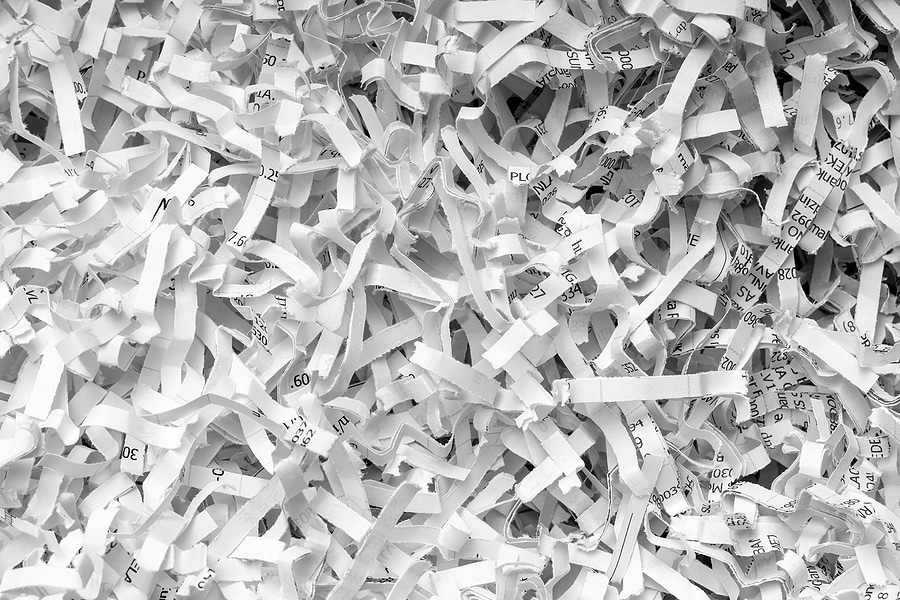Document Shredding: What are the Legal Obligations?

Data destruction has always been serious business, due to the consequences of failing to properly protect consumer data, but with the growth of digital technologies, it has become even more important over the past few decades. Businesses now have to contend with a slew of consumer privacy laws related to both digital data and hard copies.
Failure to comply with all applicable laws could not only result in government penalties, but open the door to data breach and identity theft, followed by consequences like loss of customers, revenue, and reputation, not to mention the potential for lawsuits. In other words, it’s imperative that your South Dakota business takes steps to meet legal obligations.
What are the legal requirements related to document shredding? How can you meet your obligations to protect your company and your customers, and how can a certified document shredding service help? Here’s what you need to know.
The Legalities of Document Shredding
The first thing you need to know is that you may have to comply with a lot of different laws. Not only are there consumer privacy laws at the federal level that all businesses must comply with, but you may have to contend with state and local laws, as well, along with industry regulations like HIPAA, FACTA, GLBA, and more.
These rules and regulations may specify the types of data that need to be destroyed (sensitive consumer data like medical or financial data, for example), how long you have to retain records prior to destruction, and even the particulars of how they should be destroyed. You may have to follow specific guidelines about the type of shredder you can use (cross-cut, for example) and even how small the confetti fragments have to be after shredding.
On top of all that, laws may change frequently to adapt to new threats. This can be a lot for the average business to keep track of, but failure to do so could lead to significant consequences, and government penalties may be the least of them.
Best Practices for Document Shredding
When it comes to proper document shredding, there are several steps you should take to ensure compliance with all applicable laws. Many businesses have moved toward a paperless office environment in an effort to curb document creation and paper waste, but you’re still likely to produce some amount of documents containing sensitive data.
In this case, you’ll want policies and procedures intended to keep data in hard copy format safe. A clean desk policy is wise, as is a shred-all policy, both of which help to ensure that sensitive data doesn’t fall into the wrong hands.
From there, it’s smart to partner with a mobile shredding service that can provide your office with locking bins for document safety, and visit your location on a regular schedule to pick up bins and shred document on-site while you watch. The right partner will comply with all applicable laws, including consumer privacy and environmental (recycling) laws, as well as industry regulations, on your behalf.
There’s no reason to go it alone and hope that you’re in compliance with a slew of laws. If you need reliable document shredding services in South Dakota, contact the experts at SEAM today at 605-274-7326 (SEAM) or online to request a quote.
SEAM provides IT recycling and data destruction services including onsite shredding and hard drive wiping to South Dakota, North Dakota, Minnesota, Iowa, and Nebraska.
Schedule a pickup or contact us for more information.





